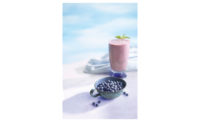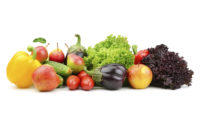Study: Clean conscience eating is next macro trend
For instance, nearly 40% of global shoppers say eating clean has become more important in their diet over the last year.

The macro-trend of eating clean has evolved from purity, clean labels and avoiding negatives into what HealthFocus International, Petersburg, Fla., calls clean conscience eating.
According to this report, consumers who eat clean are not just making a rational decision—they are making a lifestyle decision.
This 2019 report takes a deeper look at eating clean globally, regionally and across 22 individual countries to help companies better understand shopper motivations and attitudes.
For instance, nearly 40% of global shoppers say eating clean has become more important in their diet over the last year.
And, over 90% of global shoppers are at least somewhat interested in eating clean, with six out of 10 extremely or very interested.
Clean is a strong opportunity area in Latin America and throughout Asia, especially in South Asia where eating clean ranks as the No. 1 dietary trend, surpassing natural and sugar reduction.
The study reveals that parents and younger shoppers are driving this trend, as interest in eating clean is highest among the 18- to 29-year-old shoppers and declines with age. Eating clean is especially important to parents with children under 18 living at home.
Globally, 70% of parents say a clean/natural product is extremely or very important in getting them to purchase products for their children. This ranks as the No. 2 brand influence for children, just below nutrition. Clean/natural products are a key need area with parents prioritizing clean above other attributes such as more nutrients, knowing their kid will eat it, convenience and price.
Regionally, a clean/natural product ranks within the Top 3 brand influences for children in Latin America, South Asia and East Asia Pacific.
Globally, there are opportunities to better address parents’ need for cleaner products for kids. For example, four out of 10 parents wish they had better options for clean/natural products across all key meal occasions—breakfast, lunch and dinner—and snacks.
Looking for a reprint of this article?
From high-res PDFs to custom plaques, order your copy today!






